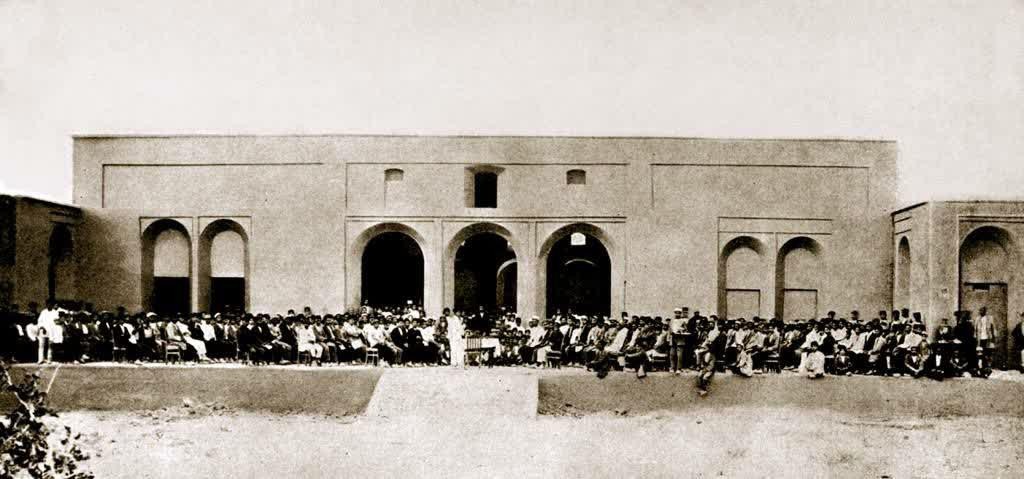Apparently, Baha’ism is claiming for not having the spiritual class and belonging to hearts and abolishing the Islamic commandments. It is claiming for the fifth or properties and tither to be ruled out. However, the Baha’ism cult has assign a great amount of money to be paid to the universal house of justice and its organizational proselytizers who have been replaced.
In Baha’ism, when the wealth of a Baha’i person is 19 methqals of gold, he/she must pay 19 percent of it as God’s share to the universal house of justice. It is said in the Baha’is book of commandments regarding God’s share: “It is sent down in the divine tablets that when a person becomes the owner, he/she must pay 19 methqals of gold.[1]” that is before a Baha’i person knows his income is enough for his/her annual consumption or not, he/she must pay 19 percent of his/her income to the Baha’i organization and it is necessary for all Baha’is:
“Paying fees is of the necessary divine duties of the divine disciples.[2]”
This cult has also copied tither from Islam:
” قَد کتب عَليکم تَزکيةُ الأقوات و ما دُونها بالزَّکوة هذا ما حکم به مُنزل الآيات فی هذا الرّقّ المنيع”[۳]
And it is also said: “Concerning tither, it has been ordered to be acted based on the holy Quran.[4]”
Yes, the organization which is superficially claiming for not having the spiritual class and is considering the fifth of the properties and tither as being ruled out has replacing the spiritual class by the Baha’i proselytizers.[5]
Using new titles and unwise interference in the commandments of Islam, the Baha’i leaders have provided a great amount of money to be paid to the universal house of justice as their organization authority and the organizational proselytizers. The spiritual class of other religions have been replaced by the organizational proselytizers.[6]

The photo is related to the Haeeyan in Yazd city and the meeting related to paying God’s rights to the lords of the Baha’ism cult
[۱] Ishraq Khawari, the treasury of limitations and commandments, Bija: the national institute of the faith press, Bita, chapter 9, p. 94.
[۲] Ibid, chapter 9, p. 101.
[۳] Hussein Ali Nouri, the Aqdas, the electronic copy, p. 138, paragraph 146.
[۴] Hussein Ali Nouri, the Aqdas, (Question and Answer epistle), the electronic copy, p. 75.
[۵] Ishraq Khawari, the treasury of limitations and commandments, the electronic copy, p. 252.
[۶] Fadhel Mazandarani, Amr & Khalq epistle, the electronic copy, p. 234.






